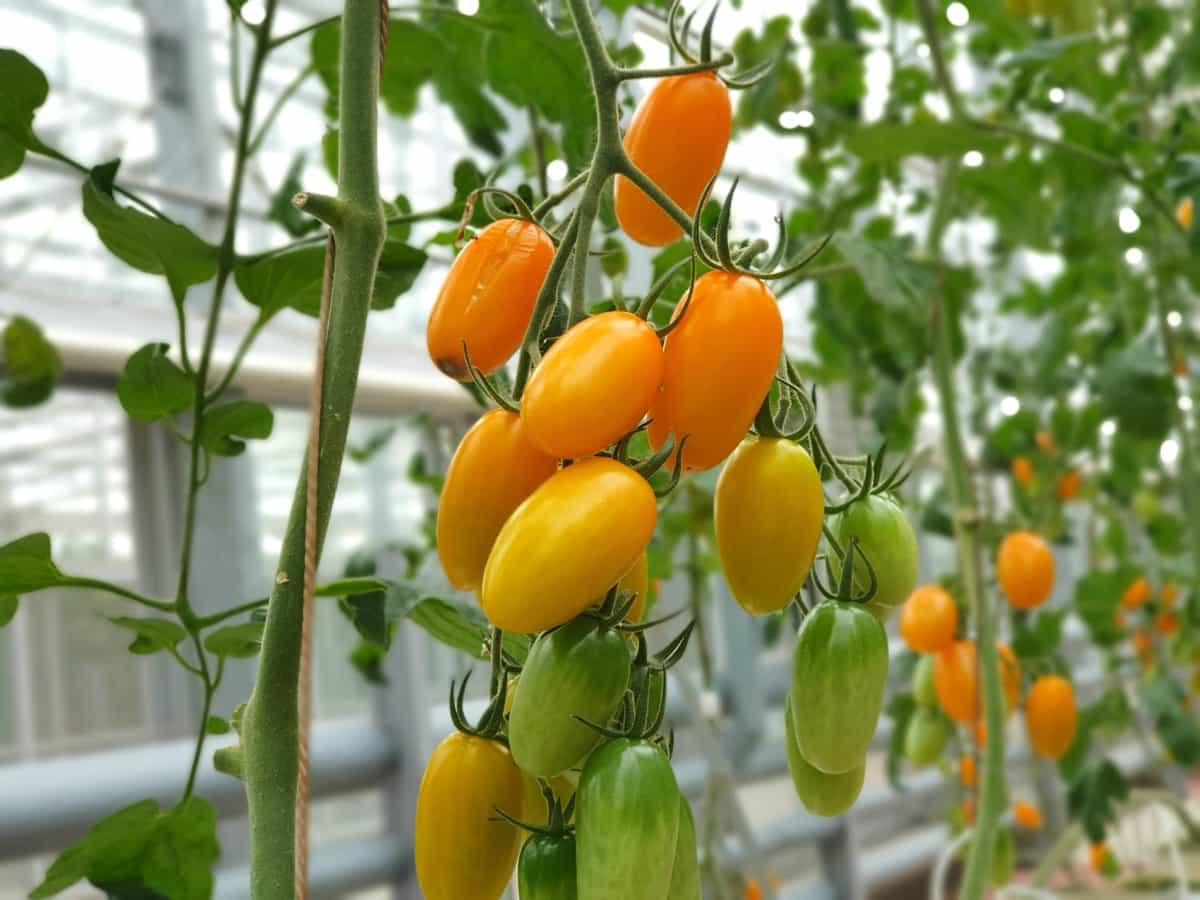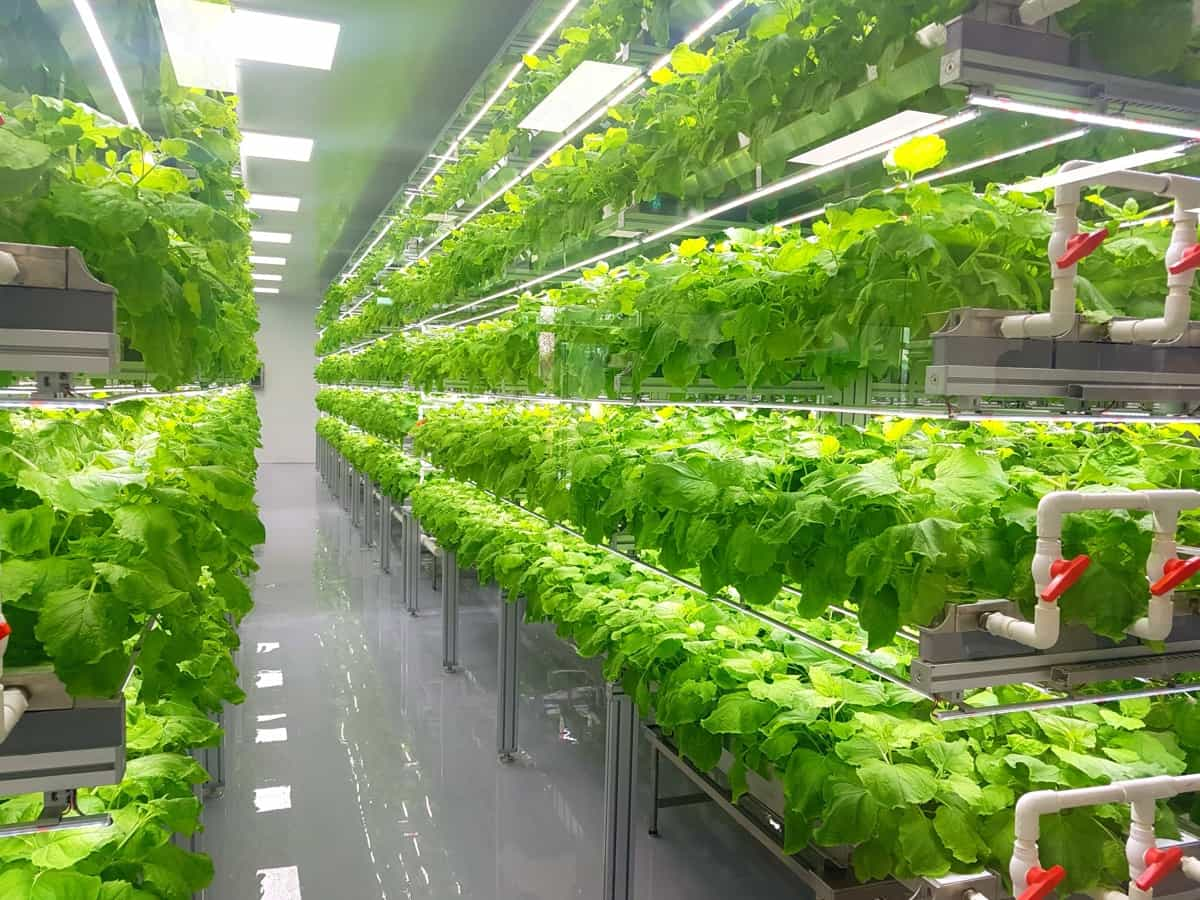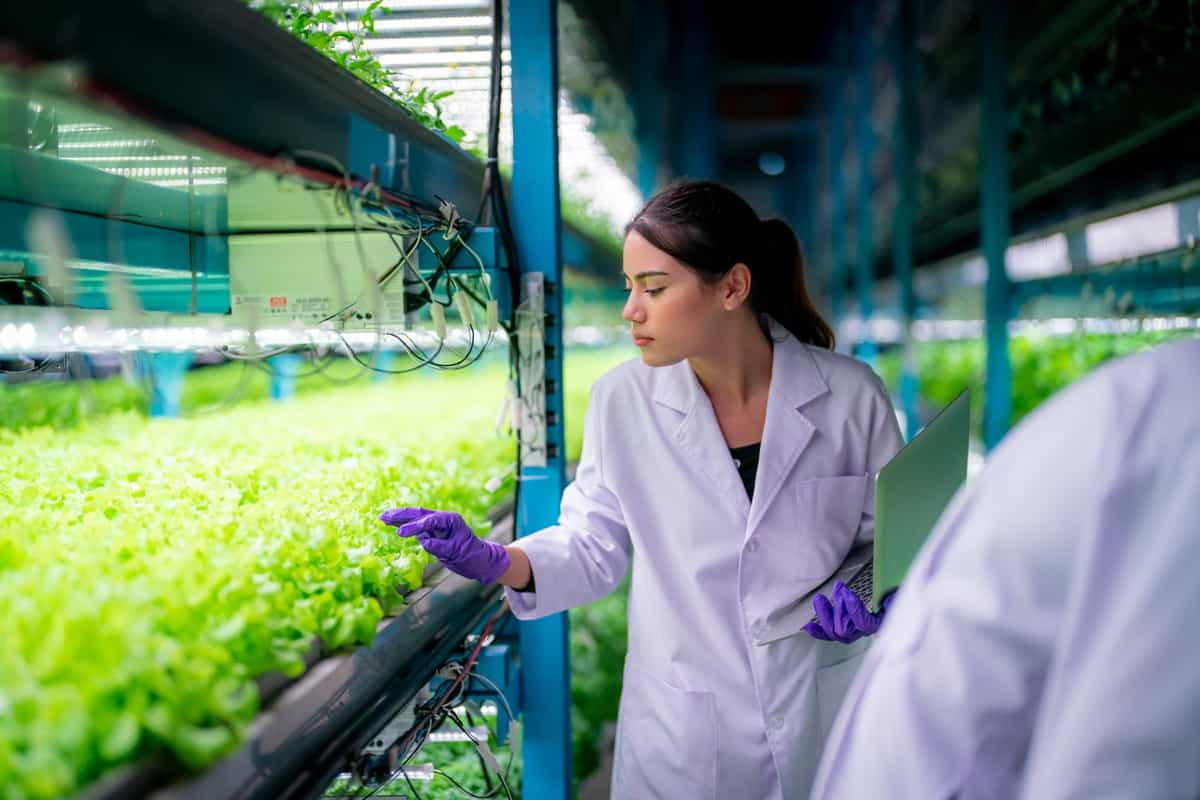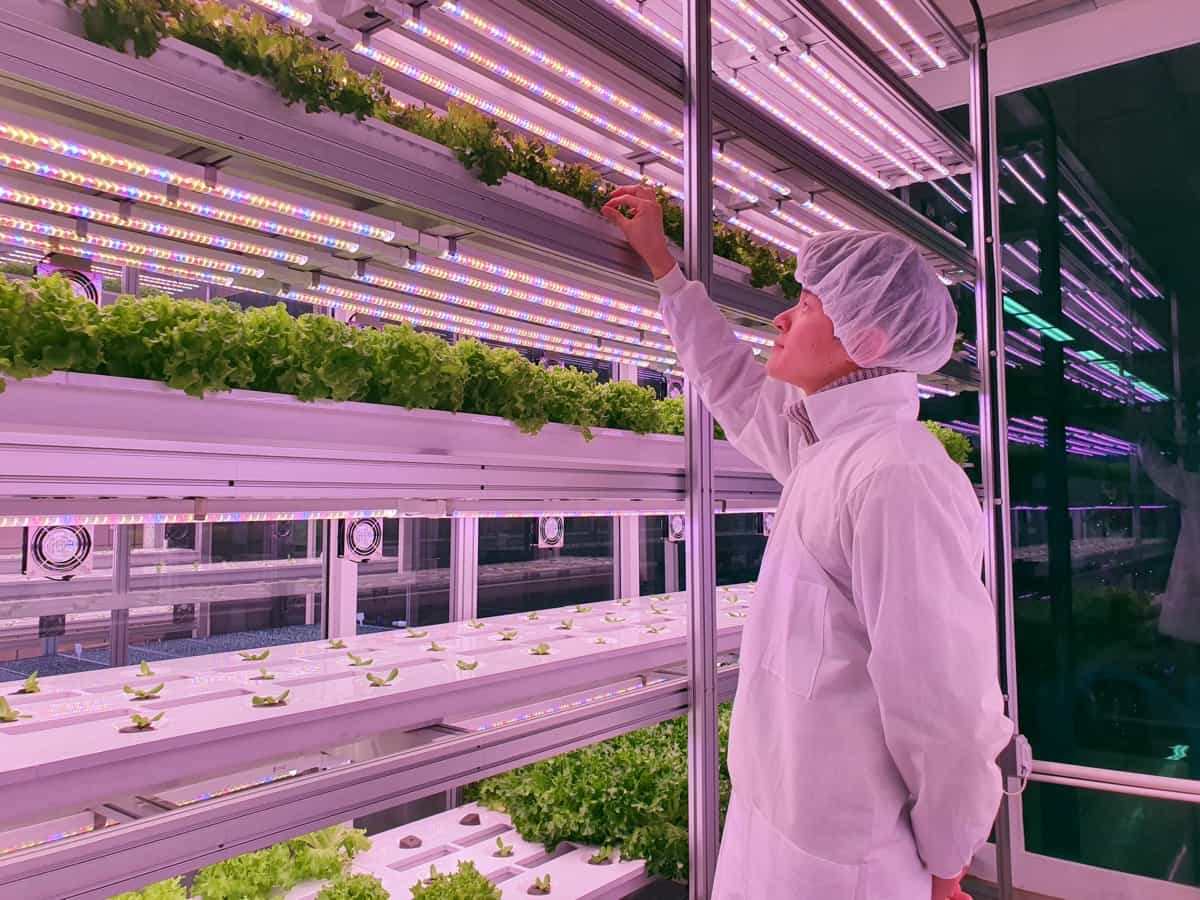Integrating blockchain technology in vertical farming is revolutionizing the agricultural sector, bringing enhanced transparency, efficiency, and security to farming practices. This technological advancement transforms everything from supply chain management to quality assurance, reshaping how we grow, track, and consume agricultural products.

Blockchain Technology in Vertical Farming
Potential of Blockchain Technology in Vertical Farming
Integration of blockchain technology in vertical farming is becoming increasingly significant due to its potential to enhance various aspects of agriculture. This technology, primarily known for its application in finance, is now making inroads into agriculture, specifically in the niche of vertical farming. Agriculture’s blockchain brings a transformative approach, offering a decentralized and transparent ledger system.
This system is particularly beneficial in vertical farming, where monitoring various parameters is crucial for crop growth. Blockchain technology has significant potential in vertical farming because it can establish a secure, transparent, and highly efficient system capable of managing the substantial data volumes produced in these agricultural settings. By recording every action and transaction, blockchain ensures that all information, from seed quality to growth conditions, is accurately tracked and managed.
Benefits of Integrating Blockchain in Vertical Farming Systems
The benefits of integrating blockchain in vertical farming systems are manifold. Firstly, it improves the traceability of agricultural products, enabling consumers to follow the path of their food from the farm to their plate. This increased transparency builds consumer trust and ensures the authenticity of the produce.
Secondly, blockchain technology in agriculture helps streamline operations. Data recorded on a blockchain is immutable and easily accessible, facilitating better decision-making and operational efficiency. Farmers can monitor crop growth in real-time, adjusting conditions for optimal yield. This integration also aids in risk management by providing a reliable record of farming practices and outcomes, which is crucial for farmers and investors in this sector.
How Blockchain Can Revolutionize Traceability and Transparency in Vertical Farming
Blockchain can revolutionize traceability and transparency in vertical farming by providing an incorruptible digital ledger for recording every step in the farming process. This includes seed sourcing, growth conditions, harvesting, and distribution details. With blockchain in the agriculture supply chain, every stakeholder, from farmers to consumers, gains access to detailed information about the produce.
In case you missed it: Creating a Vertical Vegetable Garden on a Balcony: Big Harvest in Small Space

This high degree of transparency guarantees compliance with food safety standards and minimizes the potential for fraudulent activity. Consumers can verify the origins and handling of their food, leading to greater confidence in the quality and safety of what they consume. For farmers, this means better market access and potentially higher premiums for their produce, as they can prove the quality and sustainability of their farming practices.
Enhancing Supply Chain Management in Vertical Farming through Blockchain Technology
Blockchain technology in vertical farming significantly enhances supply chain management. In the context of vertical farming, where precision and timing are key, blockchain provides a reliable and transparent way to track every aspect of the supply chain. From the moment seeds are planted to when products reach the end consumer, each step is recorded on the blockchain.
This integration ensures that all parties involved in the supply chain have real-time access to information, which helps reduce delays and improve the distribution process’s efficiency. Moreover, blockchain in the agriculture supply chain can help reduce waste by providing accurate data on production and demand, thereby allowing for more precise inventory management and distribution planning.
Leveraging Blockchain for Efficient Resource Allocation in Vertical Farming
Leveraging blockchain for efficient resource allocation in vertical farming is a game-changer. This technology accurately tracks resource usage, including water, nutrients, and energy. Farmers can use this data to optimize resource allocation, reduce waste, and increase efficiency. Blockchain technology in agriculture creates a more sustainable farming practice by ensuring that resources are used effectively.
In case you missed it: Vertical Farming Technology: A-Step-By-Step Guide

This not only helps in reducing the environmental impact of farming but also in lowering operational costs. The ability to meticulously record and analyze resource usage patterns on a blockchain platform aids farmers in making informed decisions, ultimately leading to more sustainable and profitable farming operations.
Improving Food Safety and Quality Assurance with Blockchain in Vertical Farming
Improving food safety and quality assurance is another critical area blockchain in vertical farming significantly impacts. By maintaining a secure and unalterable record of all farming activities and conditions, blockchain technology ensures that any issues related to food safety can be quickly identified and traced back to their source. This rapid traceability is crucial in preventing the spread of contaminated produce and maintaining high food safety standards.
Furthermore, the transparency provided by blockchain helps in adhering to quality standards and regulatory compliance, as all the necessary information about farming processes and products is readily available and verifiable. This not only helps in building consumer trust but also in establishing a reputation for quality in the market.
Harnessing Smart Contracts for Automated Transactions in Vertical Farming Using Blockchain
Finally, harnessing smart contracts for automated transactions in vertical farming using blockchain is an innovative approach that streamlines operations and reduces the need for intermediaries. Smart contracts are automated agreements where contract terms are encoded into code lines. In vertical farming, they streamline payments, logistics, and resource allocation based on predefined conditions.
For example, a smart contract can automatically pay suppliers upon blockchain-verified delivery confirmation. This automation increases efficiency and reduces the potential for human error and fraud. Using smart contracts in vertical farming thus represents a significant step towards more efficient, transparent, and reliable agricultural practices.
Securing Data Integrity and Preventing Fraud in Vertical Farming with Blockchain
Blockchain technology is crucial in securing data integrity and preventing fraud in vertical farming. Blockchain, through its unchangeable ledger of transactions and activities, guarantees data integrity and security against tampering. This high level of security is vital in maintaining accurate records of everything from resource use to crop health, thereby preventing fraudulent activities and ensuring data integrity. As a result, stakeholders can trust the information, which is essential for decision-making and maintaining the credibility of the vertical farming industry.
Enabling Decentralized Marketplaces for Vertical Farming Products through Blockchain Technology
Blockchain technology enables decentralized marketplaces for vertical farming products, revolutionizing how these goods are bought and sold. This technology allows for direct interactions between producers and consumers, eliminating the need for intermediaries. In such marketplaces, transactions are transparent, secure, and efficient, fostering a more equitable and accessible market.
Producers can get better prices for their products, while consumers benefit from accessing fresh, locally-grown produce with clear provenance. This decentralization empowers farmers and promotes a more sustainable and community-focused approach to agriculture.
Overcoming Challenges and Implementing Blockchain Technology in Vertical Farming
Overcoming challenges and implementing blockchain technology in vertical farming requires addressing several key issues. The key hurdles involve the intricate nature of blockchain technology, the necessity for significant infrastructure investment, and the demand for technical proficiency. Vertical farms must invest in the right technology and training to effectively integrate blockchain.
In case you missed it: How to Choose the Right Plants for Vertical Hydroponics

Collaboration with tech experts and continuous research and development are essential for tailoring blockchain solutions to meet the specific needs of vertical farming. Despite these challenges, the long-term benefits of blockchain, such as improved efficiency, transparency, and security, make it a worthwhile investment for the future of sustainable agriculture.
Conclusion
Integrating blockchain technology in vertical farming offers numerous advantages, from enhancing supply chain management to ensuring food safety and facilitating decentralized marketplaces.
- Feed Your Flock for Less: Top 10 Tips to Save on Chicken Feed
- Ultimate Guide to Ossabaw Island Hog: Breeding, Raising, Diet, and Care
- Hatching Answers: The Top 10 Reasons Your Chickens Aren’t Laying Eggs
- Eggs and Economics: Breaking Down the Cost of Raising Backyard Chickens
- Defend Your Greens: Proven Methods to Keep Iguanas Out of Your Garden
- Ultimate Guide to Cinnamon Queen Chicken: A Comprehensive Guide for Beginners
- Ultimate Guide to California Tan Chicken: Breeding, Raising, Diet, Egg-Production and Care
- Ultimate Guide to Marsh Daisy Chicken: Breeding, Raising, Diet, and Care
- 10 Types of Chicken Farming Businesses You Can Start for Profits